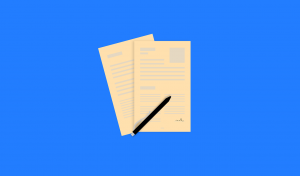— July 1, 2017

When Jason Fried decided to cut the workweek at his company from five days to four and continue to pay his employees the same salary, there were no doubt plenty of people questioning his sanity.
How could any entrepreneur – no matter how wild their ideas – think that productivity would rise if they reduced the number of hours people worked each week?
As it turns out, Fried was right; his company, Basecamp, now supplies its project management software solution to nearly 70% of Fortune 500 companies and is a highly-respected leader in the sector.
But what is deep work and how can it benefit freelancers?
Deep work: a simple explanation
Despite several books written about and numerous talks given on the subject, the process of working ’deeply’ is rather straightforward.
It relies on the worker being able to rid themselves of distractions and work in a 100% focussed fashion on singular projects.
For me, that means sitting down at my laptop in a chosen, quiet location, turning email off, switching my smartphone to mute and getting down to the serious business of writing. It has had a profound effect on the output and quality of my work.
Deep work is a perfect accompaniment to the modern world. In the UK alone, the government has extended flexible working rights to over 20 million people, effectively giving us all the green light to work how, when and where we choose.
Having given it some thought, I think there are five reasons deep work has transformed my life as a freelancer:
1. It’s taught me how non-urgent email is
A key component of deep work for me is the email inbox – or lack of it.
Every time I settle down to crack a chunk of work, I turn my email client off (notifications are off by default on all my devices). And you know what? It hasn’t got me into trouble with anyone – not once.
2. It’s made me enjoy my work more
When you’re busting your way through a big to-do list with seemingly no end in sight, the constant interruptions you get from an environment that isn’t tuned for deep work are deeply unsatisfying.
I was at that point a little while ago, and my job was getting me down – until I discovered deep work. Now, I lose myself in projects in the best way possible. I love getting work done in this way.
3. It’s taught me just how much I can get done in a single day
I now track every project I undertake so that I have a solid idea of how many hours I’m working each day.
I’ve discovered that I regularly complete less than the eight hour day we’re told is the defining standard, yet I get so much more done as a result. I never knew I had it in me until I fully invested in the deep work philosophy.
4. It makes mincemeat of big projects
When a big project lands on your desk as a freelancer, the first temptation is to take a very brief look at what’s involved – and then begin panicking.
How will you get it done? What time have you got to give it your best shot? What and who are you going to have to put on hold?
In reality, and when working on such projects deeply, they’re very rarely as bad as they first seem. Because I now work in a solitary, 100% focussed fashion, projects of this kind are not just manageable, but beatable, hands-down.
5. It proves that I can do things I’d otherwise abandon
In the past, I’ve done everything to convince myself that particularly tough jobs are either outside of my remit or simply too difficult to tackle.
Not any more. Because I know I can undertake such projects in a way that ensures I give them my full attention, I know I’m capable of practically anything.
Wrapping up
Have you tried deep work? Whether you’re a freelancer like me or employed by someone else, I highly recommending dipping your toes into this water.
Business & Finance Articles on Business 2 Community
(57)
Report Post





